Watching TV in Austria is boring. Maybe because of the quite weird location of our flat with respect to the sender antenna. The fact is that we receive very few channels, and none of them is really good. We just turn on TV to watch certain series (Grey's Anatomy, Oliver's Twist, and occasionally some great BBC documentaries). The rest is so boring that it might well be one of the reasons behind this blog! :)
Anyway, one of the shows that we watch from time to time is ATV+'s Bauer sucht Frau (farmer looks for wife). It is a so-called docu-soap --kind of a reality show that is cut and edited with a narrator's commentary-- in which a group of farmers are presented with two women each, who are willing to be his partner and help him with the farm. The women then spend a week in the farm and then the farmer chooses one, and if the one agrees, that's it!
Funny situations apart, there is something that stroke us. One of the first things that one may notice when exploring the Austrian countryside is that houses seem to be very cared for: flowers are neatly arranged on every balcony, gardens are perfectly disposed, garden gnomes included, everything looks just perfect, even though the cats that go hunting when the sun begins to fade. The house would be ready to welcome, say, the Queen. I am cool with that. The houses that appear at Bauer sucht Frau are no exception to that rule. But this time, and thanks to reality TV, we were able to look inside. And, oh man, what a contrast! Most of the rooms were completely devoid of charm: a wardrobe, a bed and that's it. Unbearably soulless. Barracks are cozier.
Yes, I know. Such houses tend to be really big, and it's not easy and probably not really necessary to furnish every single room. But who says that every single room has to be furnished? If the house is too big, well, you just take care of a couple of rooms. The whole thing appeared to me like proof of an intrinsic Austrian feature (I think I might be seeing too many "intrinsic Austrian features" these days...). What is really important is how does my house look like. To the outside. To the people looking at it. To the neighbours. To people passing by. The inside? Well, that doesn't seem so important.
How important is appearance to Austrians? I would say, generalising of course, that it is actually very important. Let's take Salzburg as an example. Salzburg seems all about the looks to me. There is no week without a letter to the editor complaining about the last piece of modern art that spoils the beauty of the Old Town or how inappropriate and evil open air concerts in the middle of a UNESCO Heritage Site are. Incidentally, there is a funny T-shirt that I saw once, wore by a random guy in Salzburg, with the word KulturERBsenzähler, which is a wordplay between Kulturerbe (Heritage Site) and Erbsenzähler (bean counter, nitpicker). Living in Salzburg feels like living in a film set sometimes. Everything is clean, proper and perfect. It doesn't look like a city where people do live, it looks more like a please-take-your-photo-from-here city.
But what applies to the city applies to its residents as well. People seem to be very conscious of their appearance. Not only because of the "stylish" Dolce & Gabbana outfits or the huge Chanel sunglasses that you may encounter --the bigger the D and G, the better... (more about that soon!)-- it's also the way people stand, the way people sit in a Café, the way people look at you at the bus... they are not relaxed, they are posing! We have been in Berlin a couple of times, and we loved the way people sat around in bars and Cafés. They look relaxed, precisely because they don't care about how they look. I think that's something that we miss from Barcelona. In fact, we first realised many things that we miss from Barcelona as we left Berlin.
People in Salzburg do not look relaxed. If you care too much about the looks, you cannot relax. People here care too much about their appearance. The top look-at-me event is the Salzburg Festival. Local and international jet set meets here around July, officially to listen to opera, basically to be seen. On especially grand venues, with assured presence of VIPs, plain people mass at the doors of the Opera House, all dressed up, to try getting a glance of Caroline, Princess of Hanover. Some of the operas of the Festival can be watched on a big screen at Kapitelplatz. If you go there, you are not going to the opera, you just go to see an opera on the screen. Nevertheless, some of the people are all dressed up.
I think appearance is not that important. At least, not important enough to prevent you from comfortably sitting in a Café and enjoying your mélange.
Monday, 25 June 2007
In & out: the importance of appearance
Saturday, 23 June 2007
Through my window
I have yet another meme to do. Mar did not only send me the one with the 8 things about me, but the one with the photos of your window at work, too.
Well, I work in Hallein, which is a town some 20km to the south of Salzburg. The company where I work is not really big (6 people), and it is located in a two-story country house. My workplace is on the ground floor, which was formerly the garage of a truckage company.
From the biggest window we see basically our neighbour's garden and on a very far background, and if the weather is good, some of the peaks of the Tennengebirge. They cannot be seen on this photo because I did not want the window to be too dark. And that's quite a challenge: the contrast between highlights and shadows was too big for my poor compact camera. I will try to shoot a better one, I promise!
My favourite workplace is one in the back room. We have a kind of reserve computer there to run some daily software tests and other routine tasks. I like when I have to work on that computer, because the side of the Dürrnberg begins just 20 meters away and all you can see are spruces and fir trees. And also because I can check how our little apple tree is doing on the backyard.
I am supposed to designate some other people to do this meme. But I will leave it once again to the will of everyone. If you read this, and you find it nice, and you want to do it, just take your camera to work and follow the meme!
Cheers!
* * * * EDITED on 5th July * * * *
I edit to put another photo. This one is done from the second floor, where my workplace was during my first five months working for the company.
Wednesday, 20 June 2007
Fahren Sie uns bitte zur Farystrasse: in memoriam

(Pictures from El Periódico de Catalunya online)
El Fary passed away yesterday. He was a famous and beloved Spanish singer, to whom I would like to pay my modest homage by telling a story that always brought a smile to my face.
This is a Spaniard who lives in Ingolstadt, Germany, who is a big El Fary fan.
Every time that he gets a cab to go home after party, he tells the cab driver, with a very serious face: "To El Fary Street, please" ("Fahren Sie uns bitte zur Farystrasse").
The cab driver does not understand.
"Yes, that's right: El Fary Street".
The driver gets a little mad.
The Spaniard says "What? You know who El Fary is, don't you?"
The angry Teuton gets himself an Ingolstadt street guide.
The Spaniard begins to sing "El Toro Guapo" while the cab driver points vehemently to the empty spot between Fanderlstrasse y Fauststrasse on the alphabetical street list.
Maestro, we will never forget you.
Saturday, 16 June 2007
8 things about me
I have got my first meme!
A meme is something like a "thing to do" that bloggers send to each other. I don't know if Richard Dawkins really agrees with this use of the word meme. Some time ago I read the book The Selfish Gene, and if I remember well, he coined there the term meme as a kind of cultural counterpart of a gene. Some bit of information which passes quickly from human being to human being. For example, a catchy tune would be a meme.
Anyway, Mar nominated me to follow up a meme that consists in telling 8 things about yourself. And here they are:
(i) I'm a mathematician who can't count. My abilities for mental arithmetic are comparable to those of a peach. Most of the people think I'm joking ("Yeah, sure. But you're the mathematician! Ha, ha, ha!") but it's the awful truth.
(ii) I cannot stand when a picture is askew on the wall, or when the brace of a girl's top or bra gets twisted. I normally solve the first just by putting the picture right, the second one is somewhat more difficult to deal with...
(iii) There are some secret little rituals that I must do, otherwise my day is not good: using a certain spoon or mug for breakfast, sitting on the right side of the bus, crossing a certain street exactly on the same place, etc.
(iv) I never liked sweeties or candy. Chocolate, tarts and cakes leave me cold. Some say I am very lucky because of this. I realised as well that this distaste for sweet is the reason behind most of the meals I don't like. Incidentally, I can eat the most disgusting vegetables or legumes, as long as they are served with rice.
(v) The icons on my Windows desktop follow a clear organisation, and I get very upset if someone clicks accidentally on "Automatic icon organisation". I always close applications through the menu File -> Quit, and I never use the cross on the top right. Applications that can be closed only with the X make me nervous.
(vi) I grow Saguaro cactus for fun. One friend of mine brought me Saguaro seeds from Arizona. Some 20 of them sprouted, many survived, others not. When we moved to Austria some of the Saguaros came with us, and I gave the rest to friends and family to be taken care of. The Saguaro is the slowest growing cactus species in the world. Mine are now 5 years old and around 5cm high. In 30 years they might start flourishing and in 50 to 70 years they will start developing their characteristic arms.
(vii) I am a big Lord of the Rings fan, but I never was able to finish the books. The Fellowship of the Ring was OK, with The Two Towers I started to get really lost and bored, and I read The Return of the King skipping large passages (pages and chapters) to get to the end. I became a big fan later, thanks to a Tolkien Encyclopaedia. But I really never read the whole books.
(viii) I am trying to teach myself to play the piano for 4 years now. Although the progress is not really spectacular, I am still convinced that I can do it, if only I found the energy to devote half an hour a day to play...
That's it then. The rules say that I have to pass the meme to 8 people, but I don't really know that many bloggers yet. So, if you are reading this and find it fun, just do it! And please drop me a comment here, so that I know that there's someone out there...
Cheers!
Tuesday, 12 June 2007
Spanish version available!
I decided to write this blog in English basically for two reasons: first, to start practising my english again, and second, so that my Austrian friends can read my thoughts as well.
Even though these two reasons still hold, I realised in these 5 first posts that the language flow is not really the same as when writing in your mother tongue. I have always tried to think directly in English, because nothing is worse than translating what's in your mind.
Nevertheless, I wasn't quite happy with the idea of not writing in Spanish. Mar has a fantastic Spanish blog, and seeing how her writing flows made me realise that maybe not writing in my mother tongue was a mistake. But, on the other side, not writing this blog in English is a mistake too. There are too many people out there who might find what I say funny or interesting who cannot read Spanish, and that's just too bad...
If you don't know which one to choose, just take them both! I decided to keep this blog in English and to start its Spanish alter ego. One of my dreams is to devote my life to live in a Café and write about what happens around me, about what goes through my mind. I guess one of the things that pushed me to write this blog is to try pursuing that dream. Now I decided to pursue it in parallel with twin blogs. I will try not to let them be merely mirrors, but let each one find its own place. This one, the English one, will keep being Die Murmeltierjahre im Land des Frühschoppens. The Spanish version has been born with the name Und komisch spricht das Murmeltier. As I already explained, the groundhog is an important reference of our life in Salzburg. The movie "Groundhog Day" was called "Und täglich grüßt das Murmeltier" ("And every day greets the groundhog") in German. "Und komisch spricht das Murmeltier" means "And the groundhog speaks weird", because now the groundhog speaks Spanish, too!
Saturday, 9 June 2007
Upright is still all right!
I like photography. It's not been a long time since I realised it, maybe 3 or 4 years, but since then I find myself quite often looking at things through a camera lens, sometimes a real one, most of the times the one in my head. I would say that I am what is now called a prosumer, not really a professional, but certainly more than a normal consumer. I find this is a stupid portmanteau word by the way.
My interest in photography began with my first digital camera. At first, like most people do, I shot trillions of photos, not really worrying about the results. You can delete if it's no good! My problem was that I didn't: I ended up with tons of boring albums, at least two hundred pictures on each, showing the world how fine our half-day excursion was. With the time I started reading books and articles, and especially looking at good photographs, and the topic became one of my passions. I try now to pay attention to the rule of thirds, the depth of field and so on before shooting. Living in a wonderfully photogenic country like Austria is just too good.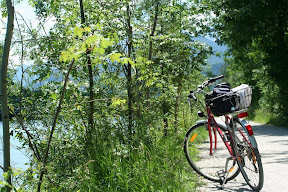
Apart from making me a hobby photographer, the advent of digital photography has had another side effect. Most of the people do not print their copies in paper any more. Pictures are viewed on the computer screen. And screens have a landscape format: width is greater than height. But when you place your camera vertically and shoot, height is greater than width and you have the portrait format (also called upright or panel format). With a paper copy that's not a big deal: you just rotate the paper 90º when viewing the picture. But rotating your computer or TV screen might not be that easy (although some computer monitors do allow such a rotation! Coooool!). When a portrait photograph is viewed on a landscape screen, plenty of unused room is left on both sides.
I have met some people who cannot live with that unused space on the screen and therefore shoot absolutely all photographs in a landscape format. Sadly enough, one of them is my own father, himself a hobby photographer when he was younger. I deplore such practice resolutely. I think some photographs are meant to be portrait, and shooting them in a landscape orientation is hurting them.

If you shoot a meant-to-be-upright photograph in a landscape format, because you are concerned about the lost space in your screen, well, I am quite sure that you will end up having too much or too few in your picture. One of the things that I learned is that in photography, less tends to be more. The fewer things appearing in your picture, the more interesting they will look. Reciprocally, the more things appearing in your picture, the more you are loosing your viewer's attention.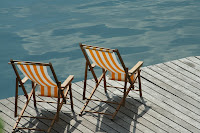
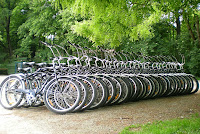
Of course, some pictures are meant to be landscape. I have nothing against landscape format at all. Each one of the formats can evoke very different feelings. A landscape format photograph tends to transmit peace and recreation. A portrait photograph can transmit highness and spirituality. Some say the horizontal line belongs to Nature, the vertical line belongs to mankind.
So, the next time that you are about to take a photograph, ask yourself some questions (first of all, what do you want to take a picture of?), try to look through the viewfinder as if you were seeing the actual paper copy and, of course, do not fear placing your camera in an upright position if your heart asks you to do so!
Monday, 4 June 2007
Katholischesland Spanien: the need for qualifiers
We were once at the Grünmarkt (green market) in Salzburg on a Saturday morning and saw some nice pears in a stall. They were so good looking that we decided to get two of them to eat right away. We approached to fruit monger and told him (in German): "Two pears, please". And then he answered, quite rudely by the way: "Two what? Two pieces? Two kilos? Two boxes?". Apart from following our standard procedure of not returning ever again to those stands where people is mean to us, the experience made me think.
Not only did I came to Austria with all my personal biases, I started to encounter the austrian ones as well. One of my favourites is: "Oh! You come from the Holy Spain! What a religious country!". The words are normally Katholischesland Spanien ("Spain, catholic country"). Maybe it is because the spanish cities where I lived are not especially pious, or it might as well be that the region where I live here is quite devotional (it is said that one fifth of the Salzburgers go to church every Sunday, that's 30.000 out of 150.000 people...) but I find (the part of) Austria (that I know) is quite more religious as (the part of) Spain (that I know). But that's another topic, to which I will devote another post sometime.
This preamble tries to provide some examples of what I like to call the need for qualifiers of the German language. If you read something about Mallorca on the newspaper, it will be invariably referred to as Ferieninsel Mallorca ("holiday island Mallorca"), even though the news has nothing to do with holidays. When a bridge collapsed in Almuñécar last year, the TV reported about Urlaubsort Almuñécar ("vacation place Almuñécar"). One gets the impression that there is no place for other business than tourism in Mallorca. Are there no fishermen or policewomen in Almuñécar? Would the audience not understand if they just talked about Mallorca or Almuñécar, maybe with a reference to the geographical location, but no other qualifiers needed?
This interesting feature is by no means limited to places abroad, it applies as well to towns and cities in Austria and Germany. They are called Namenszusätze ("name affixes") and promote Salzburg to Mozart- und Festspielstadt Salzburg ("Salzburg, city of Mozart and the Festival") or Hannover to Messe- und Expostadt Hannover ("Hannover, city of fairs and expositions"). There are no illusions left to the visitor: everything to be discovered in that city is already noisily marketed on big billboards before arriving.
I think the rude demand for precision of the fruit monger was just another instance of the need for qualifiers. You have to say thinks precisely when speaking German. You cannot simply say die Großglocknerstraße ("the Großglockner road", the highest mountain road in Europe) because you might not be understood. You must say its full name: die Großglockner Hochalpenstraße ("the Großglockner high alpine road").
A sea of clouds as seen from the Großglockner Hochalpenstraße
This need for qualifiers of the language comes together with another feature that we observed on some people here: the need to classify. Everybody and everything needs to be screened, judged, labeled and classified. If you come from Spain, you have to be passionate, fun-loving and a little bit of a womaniser. If you come from Russia, you are probably depressive and drink a lot of vodka. If you come from Britain, you are expected to be always on time, you drink warm beer and you get probably a little violent when it comes to football. And so on... I think they have many more of such clichés here than in Spain. Or, at least, I was surprised by the number of them that you might hear.
And then the issue is: Do we talk the way we do because of how we think? Or do we think the way we do because of how we talk?

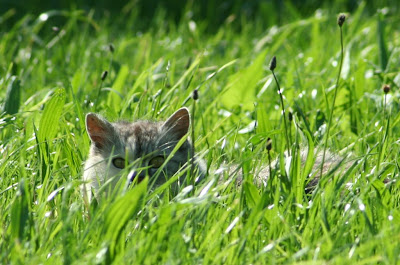


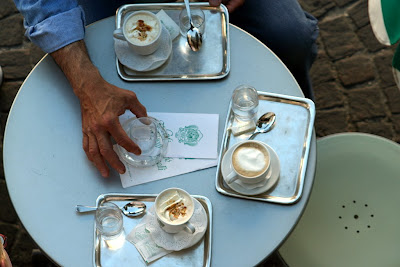
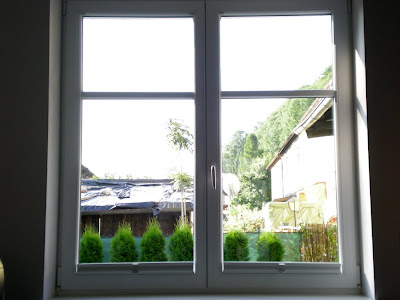
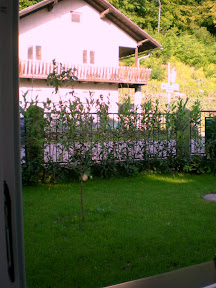
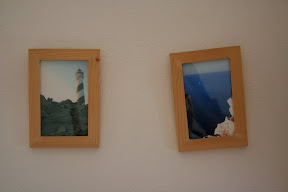


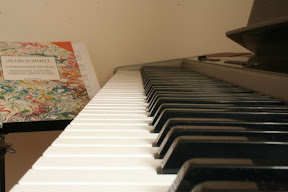
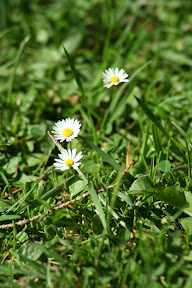

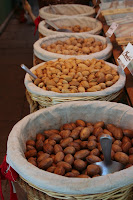


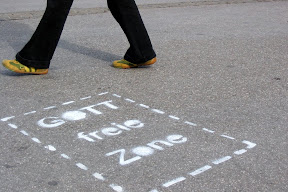
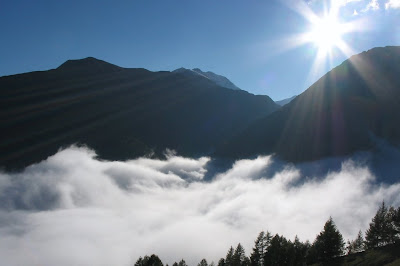
 versión en español
versión en español






